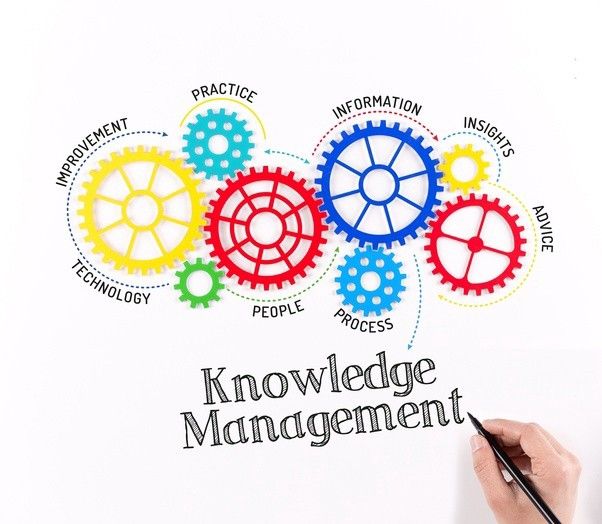Rethinking KM: What is Knowledge Management in Modern Workplaces?
Knowledge Management is about how to create, share, use and manage.

More than 50 years ago, Peter Drucker predicted information would change the way people work. In his book The Landmarks of Tomorrow (1959), Drucker proposed that "the most valuable asset of a 21st-century institution, whether business or non-business, will be its knowledge workers and their productivity."
Knowledge management first emerged as a field for practice and academic research in information systems. There has been many opinions on what Knowledge Management is but what they can all agree on is that KM is about how to create, share, use and manage knowledge in organizations. The origin of Personal Knowledge Management (PKM) can be traced back to the late 1990s. It was defined as “a collection of processes that a person uses to gather, classify, store, search, retrieve and share knowledge in their daily activities”. To knowledge workers in recent years, KM and PKM are no longer academic terms, but daily chores. The biggest challenge we face is sorting through all of the available information to identify what we need. But we respond either by doing nothing and hoping that the problem will solve itself. Knowledge management is more important than ever.
Traditionally companies dealt with this issue through transparency in their cultures, problems could be quickly identified and fixed. It is a common approach but not practical as an organization grows beyond the start-up stage. Good example is companies with strong internal email guidelines. But this often involves discipline (which translate into resources), and great change-management cost for companies that doesn’t have the culture from the beginning.
So PKM took a bottom-up approach, tried to address the issue at the individual level. There is a wide variety of great tools to choose from including G suites, Outlook, Slack, JIRA, Confluence, etc. - it seemed it worked.
However with a wealth of connected apps, ever-increasing internet speeds and boundless storage space for your documents, issue of KM skyrocketed. With IT revolution, creating and sharing knowledge have never been easier. Communication cost has decreased dramatically and this makes it possible to streamline overall work processes, speed up knowledge pipeline. After a certain point, it becomes almost impossible for individuals to catch up the speed. What almost every companies have now is important knowledge buried in an enormous amount of knowledge platforms. It will cost a good amount of time for knowledge workers to get to the right knowledge.
What should knowledge management be like in the modern workplace. The key is not about how to organize and distribute knowledge, but how to retrieve it. Fortunately, Artificial Intelligence techniques offer powerful tools for the development of knowledge management systems. With the concept of Machine Learning rises, it became possible for AI to acquire, process and unlock knowledge in ways we can’t even imagine. The most important role of AI is not just to a better job of what humans do, but to do tasks beyond what we can do.
AI-powered document management system can take data extraction to a whole new level by accurately extracting information, understanding context and inferring information from data (Allganize of course is one of the most advanced one). This is certainly a paradigm shift. Ever since the concept of KM invented, there has been always human efforts in the center of it. Even with great IT tools we have nowadays it’s been always people who create rules to organize knowledge, and do hours of trial-and-error to search for proper knowledge. Now with KM meets AI, we can focus on creating better knowledge, and improve the decision-making process through AI. Since this overwhelming flow of knowledge creation will only be accelerated, we need to find a solution to the problem as soon as possible and we believe the answer to knowledge management lies in AI.
References: McInerney, Claire (2002). "Knowledge Management and the Dynamic Nature of Knowledge"Grundspenkis, J. (2007), "Agent based approach for organization and personal knowledge modelling: knowledge management perspective"
Learn More About Allganize's Technology
